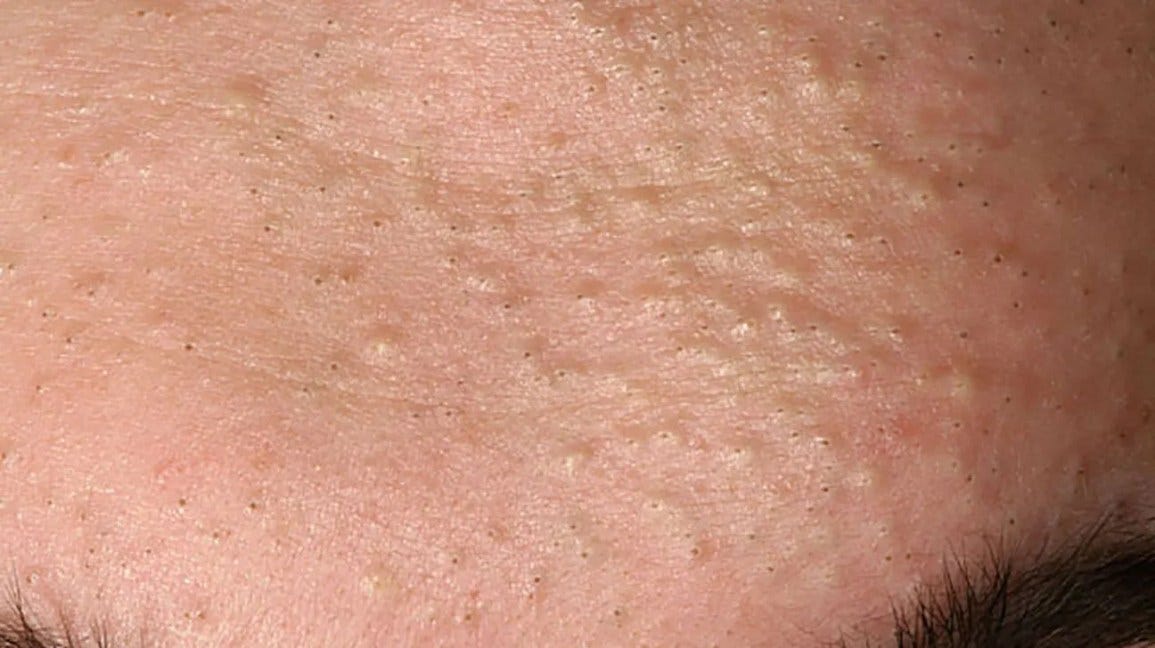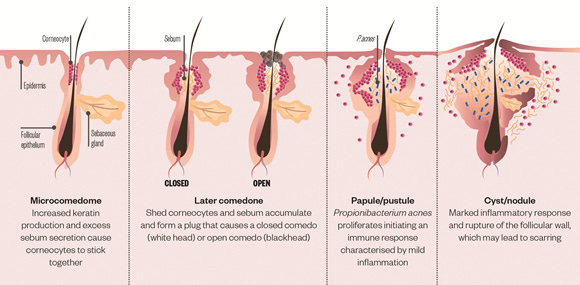If you've been dealing with closed comedones for ages, you're not alone.
These small, flesh-colored bumps, also known as whiteheads, can be a massive source of frustration and confusion.
Unlike typical acne, closed comedones are not red or inflamed, but they do affect your skin texture by making it feel bumpy and uneven.
Basically, closed comedones form when the pores in your skin become clogged with excess oil, dead skin cells, and sometimes bacteria.
Understanding what closed comedones are is the first step in addressing them effectively.
In this article, we'll explore a targeted at-home skincare routine designed specifically for you and some lifestyle changes that will help.
Plus, I’ll teach you everything you need to know about closed comedones, and after incorporating this routine daily, you’ll be left with the beautiful, clear skin you’ve always wanted!
Skincare Stacy's Stack is a reader-supported publication. To receive new posts and support my work, consider becoming a free or paid subscriber.
Understanding Closed Comedones
Closed comedones, commonly known as whiteheads, are a form of acne that appear as small, flesh-colored bumps on your skin.
They occur when your pores become clogged with a blend of sebum (the oil your skin naturally produces), dead skin cells, and sometimes bacteria.
This blockage creates a “plug” beneath your skin's surface, leading to the formation of a comedone.
Closed comedones are most commonly found on the forehead, chin, and cheeks, but they can also occur anywhere on your face, neck, chest, and back.
Blackheads vs. Closed Comedones
Unlike open comedones (aka blackheads), which have an open surface that allows the plug to oxidize and turn black, closed comedones are covered by a thin layer of skin that keeps them from oxidizing.
This is why closed comedones have a white or flesh-colored appearance, unlike blackheads.
Dealing with blackheads? Check out this guide on How to Banish Blackheads for Good.
What causes closed comedones?
Factors contributing to the development of closed comedones include:
hormonal changes & excess sebum secretion
certain skincare products
excessive humidity
and more.
Now, it’s important to note that closed comedones are not caused by poor hygiene.
In fact, over-cleansing your face, using harsh skincare products, and over-doing it on active ingredients can exacerbate the problem by disrupting your skin barrier and increasing oil production.
So, why am I explaining all of this?
Well, understanding what causes closed comedones is essential to develop an effective skincare routine to prevent and treat them, which we’ll explore in the next section.



![Routine Help] Closed Comedones and Hyperpigmentation. No "Solid" Routine. : r/SkincareAddiction Routine Help] Closed Comedones and Hyperpigmentation. No "Solid" Routine. : r/SkincareAddiction](https://substackcdn.com/image/fetch/$s_!V_Rp!,w_1456,c_limit,f_auto,q_auto:good,fl_progressive:steep/https%3A%2F%2Fsubstack-post-media.s3.amazonaws.com%2Fpublic%2Fimages%2F04b96890-2514-4db1-a81d-54eb80c744b7_618x598.jpeg)

